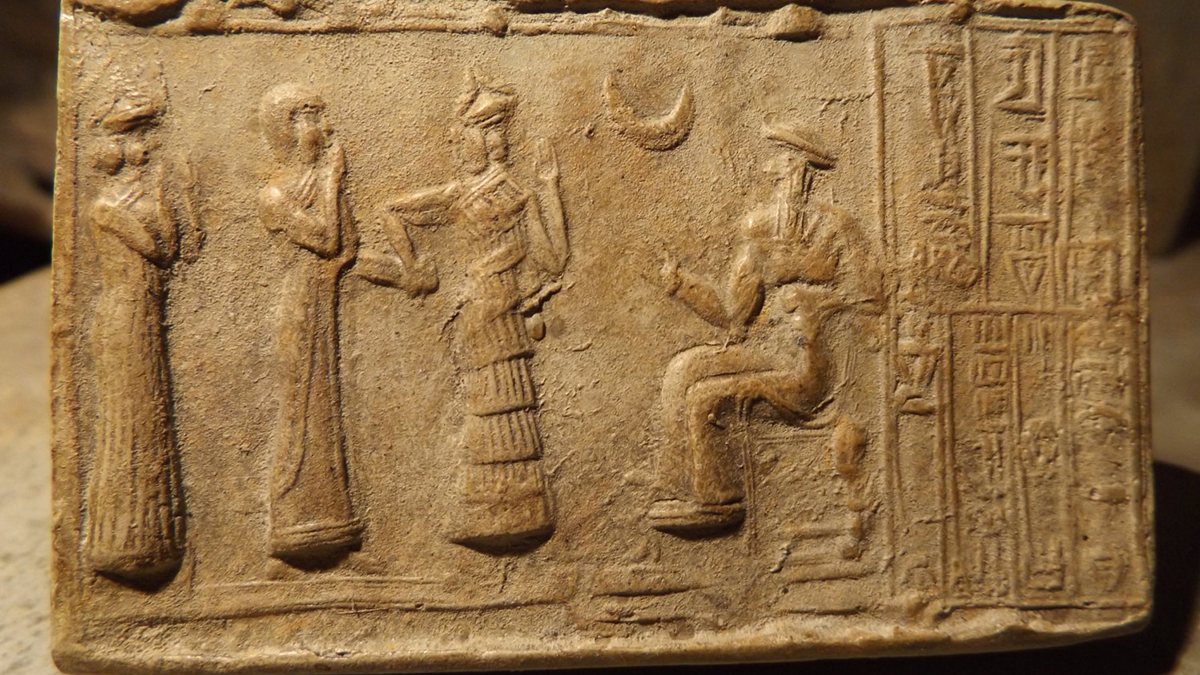Six or eight thousand years ago, they laid down the law
The B-52s, “Mesopotamia”.
As the left tears down more and more of our Western heritage and, not coincidentally, descend further and further into barbarism, it’s more important than ever to remember how we acquired civilisation.
Civilisation didn’t just happen. It was a long, slow climb out of the muck of tribalism – the very, violent tribalism the left are recreating in their Seattle utopia.
One of the most important developments on the road to civilisation was codified law. Before the advent of codified laws, “justice” was the arbitrary whim of the mob or the warlord. Then, in the Mesopotamian city of Ur, 4100 years ago, something world-changing happened.
Ur-Nammu’s code of laws, which were carved onto terra cotta tablets and distributed throughout his kingdom[…]helped to establish the idea of a set punishment for a particular crime that applied equally to all free persons regardless of their wealth or status. In other words, the code replaced arbitrary standards of justice, which shifted with each new instance of a crime, with a uniform and transparent set of rules. Many of those rules were horrific by modern standards, but the code nonetheless represented a notable development toward what we now consider to be the rule of law.
References in ancient Sumerian poetry suggest the existence of an even older legal code than the Code of Ur-Nammu, called the Code of Urukagina, written in the 24th century BCE. Unfortunately, the text of that earlier code has not survived. The Code of Ur-Nammu, as the oldest surviving legal code, is thus the best window that we have into the origins of lawmaking.
The Code of Ur-Nammu incorporated several vital concepts. First, the law was codified: like contestants in a game referencing the rulebook, disputants had an established set of rules they could refer to. Even more importantly, Ur-Namma distributed his Code. That meant that everyone had access to the law.
The Game of Ur was then popular throughout Mesopotamia among people in every social strata. Perhaps you would have heard the players arguing about the rules, and then watched them turn to a clay tablet serving as a rulebook to resolve their dispute. (Such tablets, describing the game’s rules, have survived).
The people of Ur had a guide to help them navigate disputes concerning far larger matters as well. If you were to visit in the year that the locals called the “Year Ur-Nammu made justice in the land,” believed to be around 2045 BCE, then you could have witnessed a history-altering moment. You would have perhaps had the good fortune to watch as Ur’s messengers disembarked from the city to deliver tablets bearing the new legal code throughout the kingdom.
The Code of Ur-Nammu, as the oldest surviving legal code, helped to redefine how people conceptualized justice. The Code of Ur-Nammu listed laws in a cause-and-effect format (i.e. “if this, then that”) that specifically outlined different crimes and their respective punishments. A total of thirty-two laws survive.
Another innovation of Ur-Nammu was the concept of fines as punishment.
Compared to the later Code of Hammurabi, the Code of Ur-Nammu was relatively progressive, often imposing fines rather than physical punishment on the transgressor. In other words, it often favored compensation for the crime’s victim over the enactment of retributive justice against the crime’s perpetrator[…]that said, the Code of Ur-Nammu is not one that a modern person would want to live under[…]
The advent of laws transformed how communities enact justice by ensuring a uniform and transparent set of rules. While many laws throughout history have proven to be mistakes, and unjust laws continue to pose serious problems in many countries, a system of laws is nonetheless better than a system where punishments are doled out without any consistency and at the whim of a ruler or a mob.
The laws range from brutally hypocritical (in the case of adultery, the woman was to be killed and her lover set free) to weirdly specific (a specified fine in silver for cutting off someone’s nose with a copper knife – what was going on in Ur that made that law necessary?), but they set the stage for the rule of law as we know it today.
For the time being, any way.
If you enjoyed this BFD article please consider sharing it with your friends.

